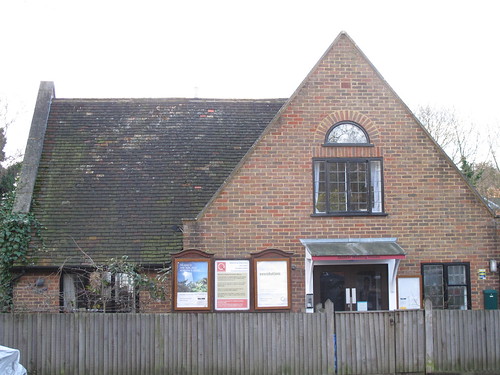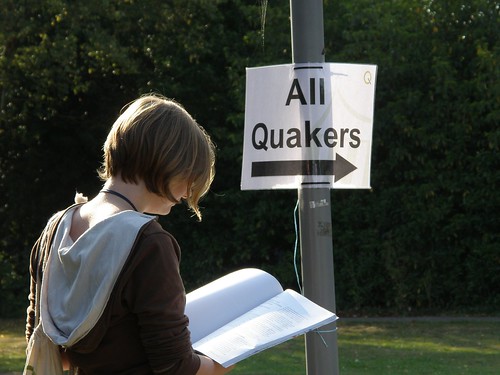 All businesses, if they are to thrive, need some form of marketing. All Quaker meetings, if they are to thrive, need some form of Outreach.
All businesses, if they are to thrive, need some form of marketing. All Quaker meetings, if they are to thrive, need some form of Outreach.
- Are they the same thing?
- What can you do to encourage Outreach?
- What can you do to encourage marketing?
- Why might you hesitate before doing anything?
“Marketing is the management process responsible for identifying, anticipating and satisfying customer requirements profitably.”
Many years ago, while Clerk of Quaker Outreach London (now London Quakers), I wrote “A Quakerly Guide to Outreach” which gathered together many ideas about how to do Outreach. I pointed out then (2005) that whilst Outreach certainly was hanging a large painted banner outside the main entrance to Friends House during Yearly Meeting or organising a group of Quakers from all over Britain to stand holding vigil in the grounds of Euston Station… it is also the friendly comments to newcomers, ensuring the loos are well signposted, and that your Meeting House exists on any local maps.
“Outreach is for me an invitation to others to join us in our way of worship and response to life which are so important to us that we wish to share them. At the simplest level this means supplying information about meetings, Friends to contact, and basic beliefs, all of which should be given accurately, clearly and if possible attractively. In the second stage outreach offers to others, through meetings, personal contact and literature, the experience and truth which Friends have found for themselves through three centuries and which impel us just as strongly today. It is different from some forms of evangelism in that it does not use mass emotional appeal, idiosyncratic demands or autocratic compulsion but only the persuasion of insight, humanity and good sense. It does not depend on rewards or threats, but on the active acceptance of those who see it as truth.” Edrey Allott, 1990
Whilst on Quaker.org you can not only read their point, ‘Outreach is the sharing of information on Quaker convictions, beliefs, practices with the general public.‘ but download the extremely useful and free Outreach Pack.
If you see the sign and poster in the photo above you might think it is almost all Outreach; it is a traditional three panel sign, complete with posters supplied by Quaker Life, with a central panel giving times of Meeting for Worship plus a bit of a blurb about what that is. However, there are also two bits of specific marketing.
First and most obviously, there is a small (not readable in the photo) A5 leaflet tacked underneath one poster which has a blurb about the building as a venue. Whilst the other, perhaps not even noticed bit of marketing, is the simple fact there is a sign there telling you that this place exists and that things happen here.
It’s the first, more specific type of outreach (posters, leaflets, etc) that most people consider when they think about raising the profile of their Meeting. That’s well supported by the centrally funded staff who work at Friends House.
However, in my next post, I’m going to concentrate on marketing the building as a venue specifically whilst also mentioning where I see the two aspects overlap.
This is the first in a series of three for number two
“Marketing your Meeting House the Basics“
or number three





